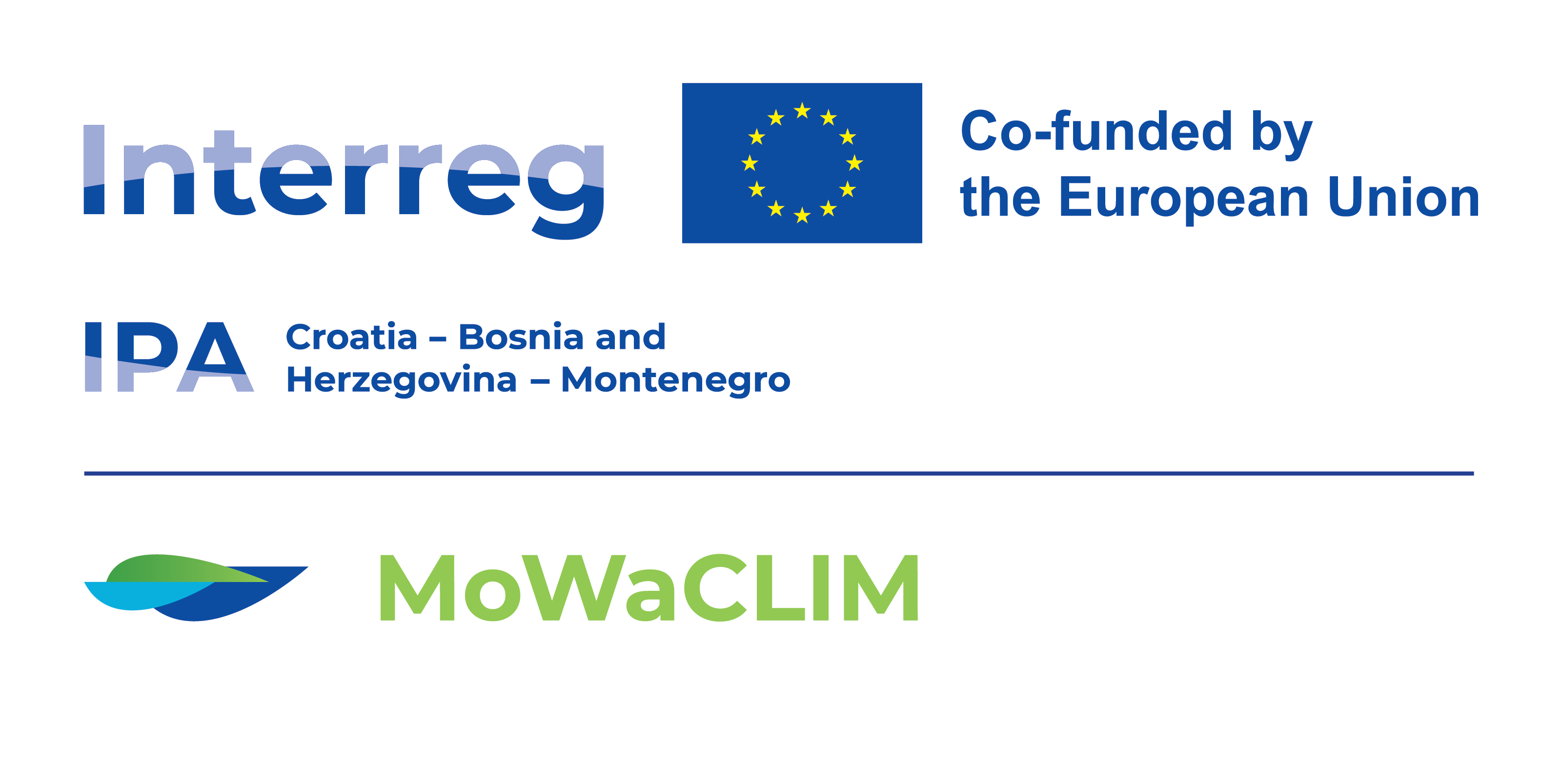
MoWaCLIM - Monitoring interaction between the ground and surface Water to improve the sustainable agricultural resilience to climate changes impact in coastal systems
Program: Interreg VI-A Croatia – Bosnia and Herzegovina – Montenegro 2021.-2027.
Lead partner: Dubrovnik Neretva County
Partners: University of Split, Faculty of civil engineering, architecture and geodesy, Croatian Agency for Agriculture and Food, Ministry of Agriculture, Forestry and Water Management of Herzegovina-Neretva Canton, Public Company Nature park "Hutovo blato" ltd.
Budget: 1.514.937,44 €
Total EU funds (85%): 1.287.696,82 €
FGAG budget: 450.938,24 €
Project duration: 01.09.2024. - 31.08.2027.
Lead of the project (FGAG): Veljko Srzić, PhD
Internet page: https://interreg-hr-ba-me.eu/project/project-library/mowaclim/
Coastal areas are worldwide locations of great interest for the living and thus are characterised by significant anthropological impact. The concentration of high number of citizens within geographically constrained areas implies several needs of whom water supply, sanitary infrastructure, food production and agricultural production are of utmost importance. Due to the locally specific conditions, some of above mentioned needs are not always possible to be ensured. Coastal eco-systems assume interaction between nature and humans and often lead towards significant obstacles and high demands which are not simple to be handled. The proximity of the seawater represents a real challenge for those areas. Climate induced changes uniquely foresee the increase in the mean sea level thus leading towards increase impacts. The consequences can been seen in coastal flooding, enhanced erosion, intensified seawater intrusion, enhanced salinization of both surface and ground water. In case of agricultural presence, the latter leads towards reduced crop productivity and highlights the problem of food production.
The biggest agricultural area in the coastal part of the Croatia is Neretva valley. Neretva river spring is located in Bosnia and Herzegovina together with 90 % of the contributing catchment area. Due to the highly used Neretva river hydropower potential in BiH and up to date climate changes, the way of Neretva river and accompanied agricultural production sustainable management becomes even more complex and challenging. Following the abovementioned challenges and their relevance, MoWaCLIM project aims for the unique, multilevel solution to tackle negative climate change impacts to agricultural production and to increase agricultural productivity resilience to the climate change impacts with a potential to be up taken and /or up-scaled to other pilot sites along and out of the Programme area. This is planned to be accomplished by putting joint effort of all project partners to ensure the Programme objective realization.
Project foundations rely on the specifically purpose-planned and implemented site specific monitoring system covering for meteo/climatic variables, surface and ground water parameters, biodiversity and agronomical monitoring enabling the relevant input for tackling the main challenges of the MoWaCLIM. As an extension of the monitoring system, MoWaCLIM offers an up to date IT tool called HydroAgroCloud which couples for site specific monitoring data sets enabling the insight to the cause of the problem and offers effective contribution to agricultural production resilience. The project finally leads to development of the strategy for the adaptation of agricultural production along the pilot site area to climate change impacts. Specific effort will be given to the use of appropriate soft countermeasures and actions in a way of guidelines for the agricultural goods to be taken, irrigated or similarly approached in operative manner. As a follow up, action plan will be created to ensure the on time and straightforward strategy implementation. Due to the fact MoWaCLIM project consortium has been established based on their area of expertise, professional background and their role in the project, MoWaCLIM represents the way of incorporating technical and empirical expertise into the solution of the problem strictly related to relevant program objective.
Highlighted novelties of the MoWaCLIM can be summarised as follows:
i) planned and implemented monitoring system coupling for climatological/meteorological variables, precipitation, wind speed,
ii) observed surface and ground water bodies features as a main driving forces resulting in the eco system salinization,
iii) biodiversity and agronomical transience monitoring as an indicator of climate change impacts
iv) developed and site implemented HydroAgroCloud which offers an insight to the local conditions, external loadings, climate change induced agricultural production degradation
v) soft actions, interventions either guidelines for agricultural adaptation to be implemented to increase the resilience of the pilot sites in BiH and Croatia.